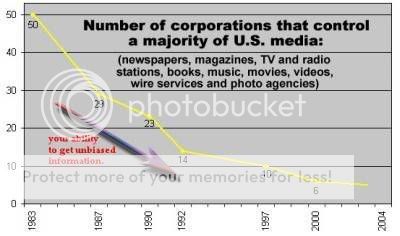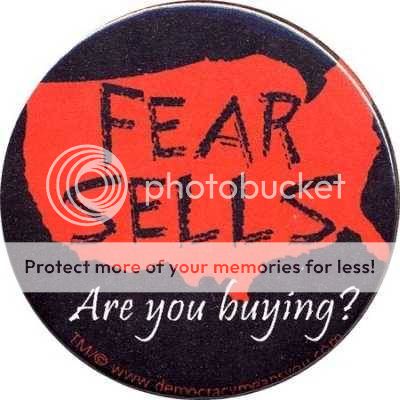It looks like you're using an Ad Blocker.
Please white-list or disable AboveTopSecret.com in your ad-blocking tool.
Thank you.
Some features of ATS will be disabled while you continue to use an ad-blocker.
1
share:
How a Treasury Department Watchlist Ensnares Everyday Consumers as Terrorist
www.washingtonpost.com
(visit the link for the full news article)
Private businesses such as rental and mortgage companies and car dealers are checking the names of customers against a list of suspected terrorists and drug traffickers made publicly available by the Treasury Department, sometimes denying services to ordinary people whose names are similar to those on the list.
The Office of Foreign Asset Control's list of "specially designated nationals" has long been used by banks and other financial institutions to block financial transactions of drug dealers and other criminals. But an executive order issued by President Bush after the Sept. 11, 2001, attacks has expanded the list and its consequences in unforeseen ways. Businesses have used it to screen applicants for home and car loans, apartments and even exercise equipment, according to interviews and a report by the Lawyers' Committee for Civil Rights of the San Francisco Bay Area to be issued today.
Related News Links:
www.truthout.org
media.washingtonpost.com
This story is beyond any Orwelian scenario. If you have any arab resembling name, just one in your whole name, you might be in trouble purchasing
anything were a credit transaction is required. All due to The
OFAC List, the list of "specially designated nationals" issued by the Office of Foreign Asset Control.
Read the story. If you're not, or don't want to sign up to Washington Post, use the truthout link, same story. It has horrendous examples of what can happen to people who in the 2 to 3 or 4 names we all carry, have one resembling common arab names like Mahamed, Hussein, etc.
www.washingtonpost.com
(visit the link for the full news article)
Read the story. If you're not, or don't want to sign up to Washington Post, use the truthout link, same story. It has horrendous examples of what can happen to people who in the 2 to 3 or 4 names we all carry, have one resembling common arab names like Mahamed, Hussein, etc.
www.washingtonpost.com
(visit the link for the full news article)
Now we must consider the "domestic terrorist threat" as well. Soon you will see names of all sorts popping up on lists like these. I wonder how many
Jim Jones and Tim McVeigh's are out there. And how about if a John Doe blows something up?
Before you know it, no one will be able to buy anything, or go anywhere, without having all the red-tape cleared up with the "new foolproof DNA DataScan underskin insert."
[edit on 3/1/0808 by jackinthebox]
Before you know it, no one will be able to buy anything, or go anywhere, without having all the red-tape cleared up with the "new foolproof DNA DataScan underskin insert."
[edit on 3/1/0808 by jackinthebox]
This is how the government is going to take care of the dissenters in America, going against the government will render you in the terrorist list
accidentally.
Want to protest the government? you may find yourself in the littler black list, oops I forgot Nixon had one of those at one time.
Yes this is what is becoming of our nation.
but is all good because is for you own good.
Want to protest the government? you may find yourself in the littler black list, oops I forgot Nixon had one of those at one time.
Yes this is what is becoming of our nation.
but is all good because is for you own good.
Let me take this chance to bring the attention to a paper by Zbigniew Brzezinski, originally published by WP nearly a year ago.
It's about How a three-word mantra has undermined America.
Terrorized by "War on Terror"
Just wanna say the same expotential growth is happening on any list connected terror or terrorists.
It's about How a three-word mantra has undermined America.
Terrorized by "War on Terror"
The culture of fear is like a genie that has been let out of its bottle. It acquires a life of its own - and can become demoralizing. America today is not the self-confident and determined nation that responded to Pearl Harbor; nor is it the America that heard from its leader, at another moment of crisis, the powerful words "the only thing we have to fear is fear itself"; nor is it the calm America that waged the Cold War with quiet persistence despite the knowledge that a real war could be initiated abruptly within minutes and prompt the death of 100 million Americans within just a few hours. We are now divided, uncertain and potentially very susceptible to panic in the event of another terrorist act in the United States itself.
[---]
That America has become insecure and more paranoid is hardly debatable. A recent study reported that in 2003, Congress identified 160 sites as potentially important national targets for would-be terrorists. With lobbyists weighing in, by the end of that year the list had grown to 1,849; by the end of 2004, to 28,360; by 2005, to 77,769. The national database of possible targets now has some 300,000 items in it, including the Sears Tower in Chicago and an Illinois Apple and Pork Festival.
Just wanna say the same expotential growth is happening on any list connected terror or terrorists.
reply to post by khunmoon
The "Culture of Fear" runs the world. Look at the MSM. Virtually very news item stresses the fear factor. Marketers and Advertisers use FEAR as their biggest weapon.
Tune into the 11:00 news tonight to see what "they" are putting in your childrens' cereal.
or
Tune in tonight to see what criminal is on the loose in your neighborhood.
Sell all your stocks, because a depression is coming.
or
You'd better stock up on bottled water (on special at $3.99 a gallon in aisle 7)
or
You'd better get down to the store today in the next hour before all of the snowshovels are gone.
or
.....the list goes on.
Once you realize that it is happening, you need not fear again.
Whenever you hear a news item, or an ad, stop and ask yourself, "where is the fear factor in this item?"
The truth shall set you free.
The "Culture of Fear" runs the world. Look at the MSM. Virtually very news item stresses the fear factor. Marketers and Advertisers use FEAR as their biggest weapon.
Tune into the 11:00 news tonight to see what "they" are putting in your childrens' cereal.
or
Tune in tonight to see what criminal is on the loose in your neighborhood.
Sell all your stocks, because a depression is coming.
or
You'd better stock up on bottled water (on special at $3.99 a gallon in aisle 7)
or
You'd better get down to the store today in the next hour before all of the snowshovels are gone.
or
.....the list goes on.
Once you realize that it is happening, you need not fear again.
Whenever you hear a news item, or an ad, stop and ask yourself, "where is the fear factor in this item?"
The truth shall set you free.
Oh, I'm quite aware of the fear mongering in the news.
I think it's funny actually. How other people can actually believe what is being said enough to literally be scared is beyond me.
My girlfriend came back from work today after I did, I was watching the news... she asked what I was up to, and I responded "Watching the propaganda."
To which she quickly responded, "Ah, is Bush talking again? Or is it just another terror threat?"
I love her.
Point is, when it becomes so commonplace that the simple reference to propaganda triggers thoughts of Bush and Terror... you start to realize that the terrorists already won this battle, about 6 years ago.
I think it's funny actually. How other people can actually believe what is being said enough to literally be scared is beyond me.
My girlfriend came back from work today after I did, I was watching the news... she asked what I was up to, and I responded "Watching the propaganda."
To which she quickly responded, "Ah, is Bush talking again? Or is it just another terror threat?"
I love her.
Point is, when it becomes so commonplace that the simple reference to propaganda triggers thoughts of Bush and Terror... you start to realize that the terrorists already won this battle, about 6 years ago.
new topics
-
Dr Cambell talking about using worm meds for cancer
Medical Issues & Conspiracies: 29 minutes ago -
A Question for You on the Left
Political Ideology: 2 hours ago -
Words of Wisdom from the Dear Leader - Transcribed for the World
Regional Politics: 2 hours ago -
Looks like Biden kicked off WWIII and Putin threatening nukes to retaliate
World War Three: 2 hours ago -
Watch SpaceX Starship Test Flight 6 Live - Launch Starts 4pm CST , 2200 GMT.
Space Exploration: 7 hours ago -
Watch Dramatic Moment Ukrainian Nursery Teacher Takes Out Russian Missile With Rocket Launcher
Mainstream News: 7 hours ago -
He Had and It Has
Short Stories: 11 hours ago
top topics
-
Democrat county officials openly declare intention to commit ballot fraud in PA
2024 Elections: 17 hours ago, 19 flags -
Looks like Biden kicked off WWIII and Putin threatening nukes to retaliate
World War Three: 2 hours ago, 9 flags -
A Question for You on the Left
Political Ideology: 2 hours ago, 8 flags -
Morning’s Reverie
Short Stories: 14 hours ago, 3 flags -
He Had and It Has
Short Stories: 11 hours ago, 3 flags -
Words of Wisdom from the Dear Leader - Transcribed for the World
Regional Politics: 2 hours ago, 3 flags -
Watch Dramatic Moment Ukrainian Nursery Teacher Takes Out Russian Missile With Rocket Launcher
Mainstream News: 7 hours ago, 2 flags -
Watch SpaceX Starship Test Flight 6 Live - Launch Starts 4pm CST , 2200 GMT.
Space Exploration: 7 hours ago, 2 flags -
Dr Cambell talking about using worm meds for cancer
Medical Issues & Conspiracies: 29 minutes ago, 2 flags
active topics
-
Words of Wisdom from the Dear Leader - Transcribed for the World
Regional Politics • 2 • : gortex -
Russian ‘floating bomb’ ship packed with explosives now just 15 miles from two UK towns
Breaking Alternative News • 155 • : Oldcarpy2 -
President-Elect DONALD TRUMP's 2nd-Term Administration Takes Shape.
Political Ideology • 220 • : WeMustCare -
Dr Cambell talking about using worm meds for cancer
Medical Issues & Conspiracies • 1 • : NoOneButMeAgain -
A Question for You on the Left
Political Ideology • 7 • : theatreboy -
Looks like Biden kicked off WWIII and Putin threatening nukes to retaliate
World War Three • 37 • : DontTreadOnMe -
Post A Funny (T&C Friendly) Pic Part IV: The LOL awakens!
General Chit Chat • 7789 • : angelchemuel -
Trump’s N.Y. hush money sentencing delayed until after Nov. election
2024 Elections • 20 • : WeMustCare -
Democrat county officials openly declare intention to commit ballot fraud in PA
2024 Elections • 15 • : network dude -
WATCH LIVE: US Congress hearing on UFOs, unidentified anomalous phenomena
Aliens and UFOs • 133 • : putnam6
1


